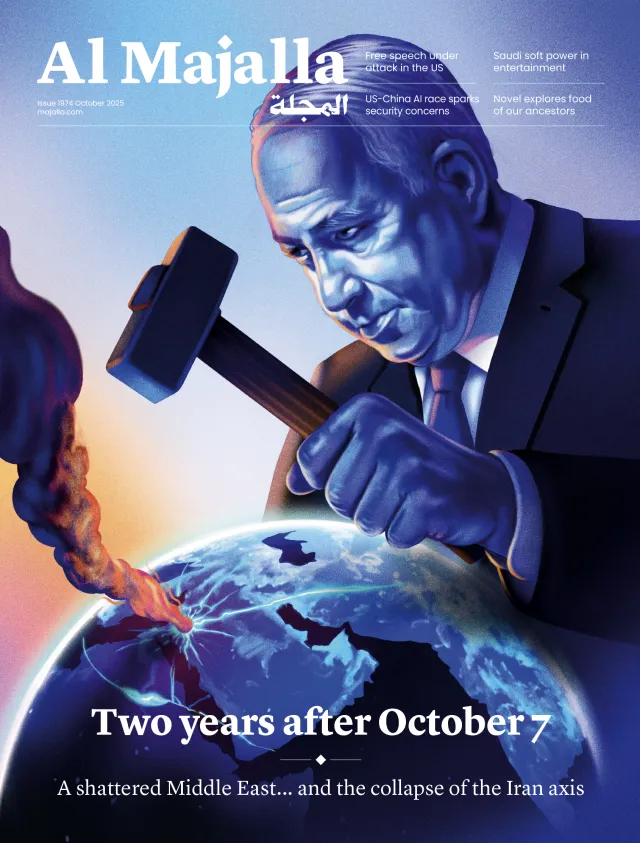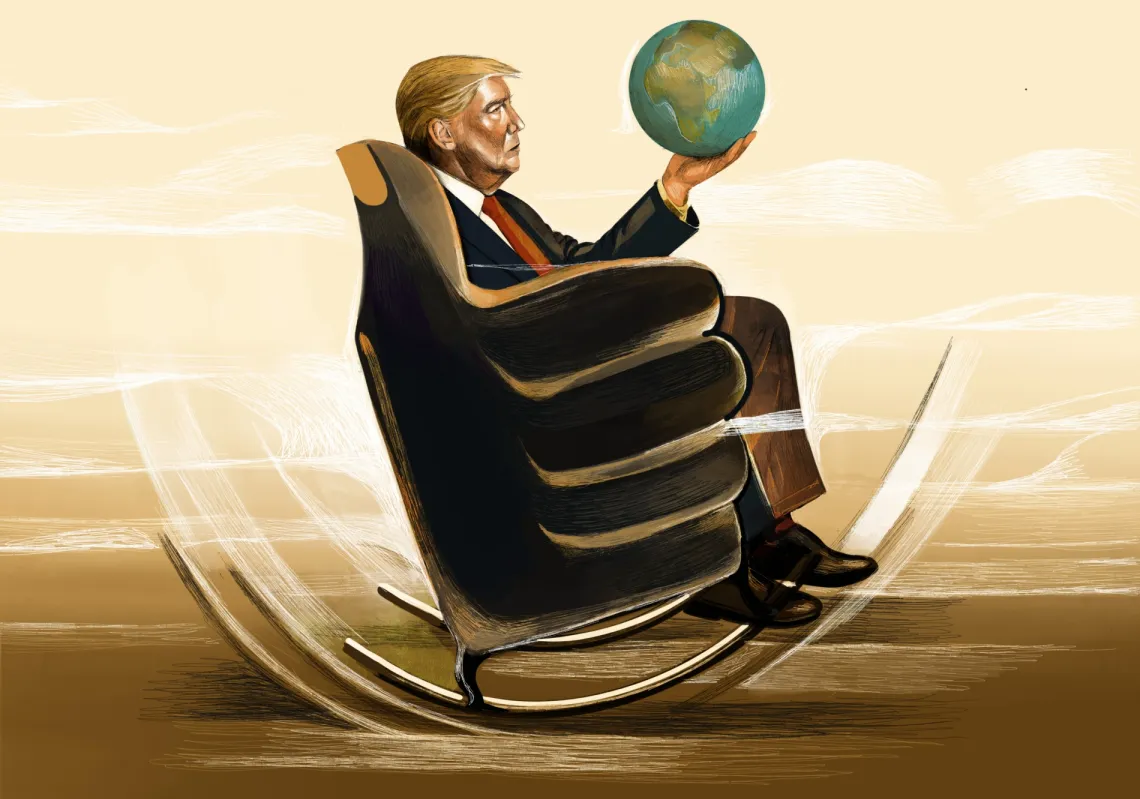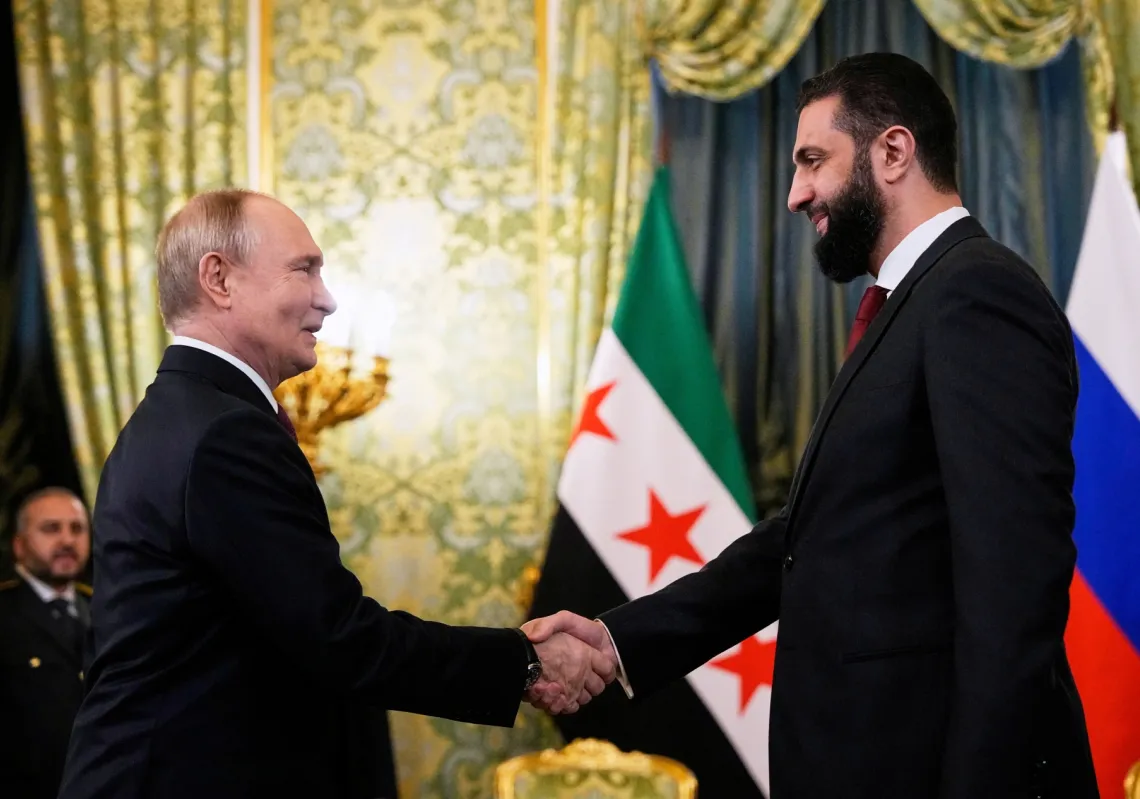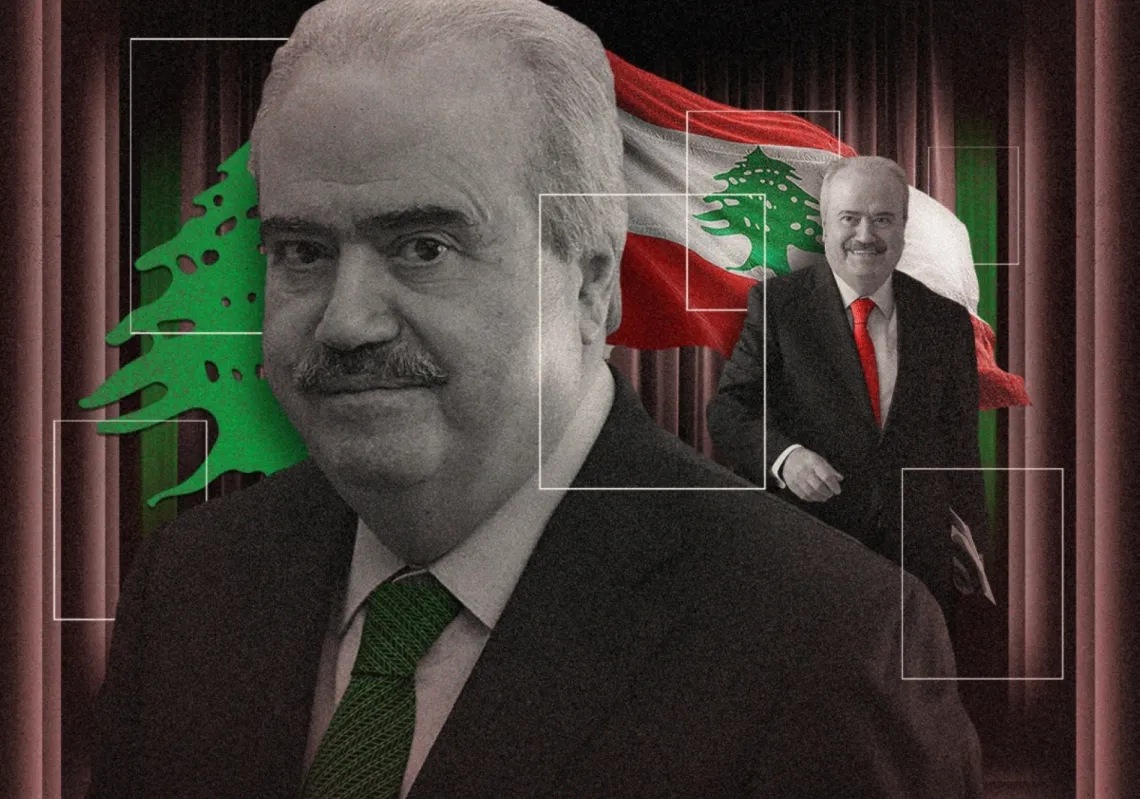Six months after the Iraqi parliamentary elections, the absence of a new government leaves an ever-increasing power vacuum. With the Iraqiyya alliance and the State of Law bloc battling for power, the repercussions of this power vacuum are becoming evident in the streets of Iraq, where violence continues to break out. Once formed, the future government will be the first to rule over a fully sovereign Iraq since the US-led 2003 invasion, and thus, the stalemate poses questions regarding the viability of the Iraqi constitution and the democratic aspirations of the country. Rather than reconciling different ethnic, tribal and religious groups, the elections have further entrenched sectarian divisions, thereby contributing to the various levels of violence and instability over the past years. With the last US combat brigades having left Iraq and still no agreement between the numerous coalitions reached, the situation in Iraq poses questions concerning the future of democracy in the Middle East as a whole.
The Majalla spoke to Tareq Al-Hashimi, a vice president since April 2006, about the lack of progress after the elections. Outlining the domestic and regional obstacles to the formation of a new government, he emphasizes the differences between his own Al-Iraqiyya alliance and Al-Maliki’s State of Law bloc, whilst insisting on the responsibility of all politicians to represent the Iraqi people. Al-Hashimi’s outspoken commitment to a strong constitution is doubtlessly challenged by sectarian divisions, which reach beyond Iraq’s borders. While arguing on the one hand that the previous government created a failed state and on the other that Iraqi democracy is in its infancy, Al-Hashimi’s line between power struggle and building the best possible democracy appears very blurred. In this conversation, the fragile relationship between a weak constitution, a frustrated people and the struggle between self-interest and the common good becomes dauntingly evident.
Q: What is the current constitutional situation in Iraq? Does the government hold its powers until now, or has it become a caretaker government?
The Supreme Court has ruled that the Presidency Council (comprising the president and his two vice-presidents) will continue to assume its powers until a new president is elected according to Article 72 of the constitution. As for the cabinet, its elected members were excluded from swearing in at the Council of Representatives in order to resume their work. This is a part of the constitutional confusion faced by the country. Meanwhile, the transformation from government to caretaker was met with objections, and the new parliament must still endorse the decisions of this transitional period before implementing them.
Q: Is Iraq right now experiencing a state of constitutional vacuum? If so, what are the repercussions?
The Council of Representatives has been in open session for about four months, which is unconstitutional—a result of the absence of legitimacy, whereby the constitution continues to be subjected to the will of the political blocs, rather than the opposite. This is a negative precedent, as the legal supremacy of and respect for Iraq’s constitution should be valued over and above political calculations.
Q: Six months have passed since the legislative elections and Iraq is still without a government. What obstacles, domestic, regional or otherwise, are preventing Iraqis from forming a government?
The obstacle is overwhelmingly a domestic one, along with a strong regional factor. Not acknowledging the results of the elections that revealed the victory of the Iraqiyya bloc is a narrow-minded stance. Furthermore, those who rejected the results were unable to offer an alternative consistent with their interpretation of the constitutional provisions related to the majority bloc in parliament. This has resulted in a state of political disintegration, and the only solution is to rebuild confidence between the parliamentary blocs, first and foremost by acknowledging the electoral and constitutional entitlements of the Iraqiyya bloc.
Q: Some have said that Iran is hindering the formation of the government by objecting to Dr. Iyad Allawi’s victory. What is your opinion on the matter?
The issue is a "conflict of wills"; Iran wants to impose its will on Iraq by rejecting any project that represents the Iraqi national will, whether resulting from the elections or a political agreement. The question is broader and more complex than a mere Iranian objection to Iraqiyya or Dr. Allawi. Our message to Iran is that a good neighborly relationship is usually based on a coexistence of interests and not a conflict of wills.
Q: It has been reported that Syrian president, Bashar Al-Assad convinced President Ahmadinejad in their last meeting to change Iran's stubborn stance and facilitate the formation of the government. Has Al-Assad been helpful in this matter?
Syria has been playing a positive role in supporting Iraq, whether by attempting to bridge the gap between the political blocs or holding talks with regional parties. However, the issue is related to Iran's approach, which tends to use the Iraqi file as a card of regional power in its international calculations. Consequently, it will not give it up easily, as it does not appear in the near future that Iran is ready to reconsider its intervention in the Iraqi affairs.
Q: To what extent do you consider the inability to form an Iraqi government a failure of the Iraqi democratic example?
Democracy has not failed. Rather, we are witnessing a historic change and a socio-political birth. The current problem is that pledges to respect election results and other requirements of a nascent democracy have been thrown to the wind in the first test of applying the principle of power rotation on the ground—one of the most important democratic principles. In order to protect democracy, pillars of state should be established by abandoning the sectarian quota system that damaged social cohesion and caused an imbalance in the political process, which resulted in the current political situation. Also, a constitution supported by an overall vision of Iraq that minimizes divisions should be implemented, and flaws of previous governance should be revised and evaluated, along with building and enhancing confidence among political blocs.
Q: Don't you think that Iraq needs major constitutional reforms in order to avoid a similar stalemate in the future?
Yes, certainly. There was a breakthrough in constitutional amendments in the previous parliamentary session, and we hope to see these amendments completed and endorsed in this session. Thus, implementing Article 142, which stipulates that the implementation of amendments that meet national consensus should be among the priorities of the legislative reform paper, which we intend to propose when the Council of Representatives begins its actual sessions.
Q: Are there plans to hold a forum of sorts in order to examine Iraq’s recent experience and to agree on a strategy that would help the country to move towards a true democratic beginning?
The Council of Representatives is the natural place of reviewing and assessing the political process, as it is the supreme source of legitimacy in the country. Thus, we see it as necessary for the council to endorse a national contract, including general and clear principles. In 2007, I proposed these principles to be an Iraqi agenda for unity, coexistence, rotation of power, and the management of state, wealth and development. Then, in the light of these principles, a reconsideration of the present constitution can be made.
Q: Don't you see that these elections represent a major failure to the several millions of courageous Iraqis who defied the threat of violence by declaring their votes? How do you face the Iraqi people after the disappointment they feel because of you?
Perhaps generalization is not fair, as not everybody carries the same degree of blame for public disappointment, especially when their stances differ between the owner of the right and the one who seeks to confiscate his right. The best apology to the Iraqi people is to form the government quickly by respecting the will of Iraqi voters, and by a commitment on the part of the parliamentary blocs to stop exchanging accusations and to work towards unity in a way that will help them to enhance their credibility before the people.
Q: If the situation remains as it is and a government is not formed, how long do you think Iraqis will wait for you to solve your differences? Do you fear that the current violence will spread?
The Iraqi people are frustrated by the reality and have started losing patience. They have expressed this frustration through protests against lack of services in many governorates. Politicians have to recognize the suffering of people and the needs of the nation and its citizens. Respecting the people's sacrifices and patience obliges us to put an end to this crisis. Also, the pressure of crisis does not give the space for the collective mind to judge objectively and fairly. Thus, perhaps now there are some who conflate the executor with the victim and accuse them all of having equal shares in the conflict. Iraqiyya is the victim of the other parties. Maybe calming tensions, reasonable thinking, moderating and lowering expectations will contribute to the quick formation of a government, which Iraqis aspire to.
Q: Al-Hashimi meets with Al-Hakim, Allawi meets with Al-Maliki, Al-Sadr with Barzani, Talibani with others… All these meetings have yet to resolve anything. What has come of them?
These meetings may appear to be "public relations" activities, but they are attempts to find a solution by exchanging views on the political papers examined by negotiating committees. As long as the political scene remains complicated, the coalitions are divided, and views are different, finding a solution will not be easy, but it will not be impossible either. Therefore, such meetings are required even if they do not achieve much at the moment.
Q: Don't you think that holding so many meetings may make the political elite lose credibility and respect in front of the Iraqi people?
There is a positive side in such meetings, as they help in healing the rift, removing obstacles and bridging gaps. Amidst the complicated political situation, there must be intensified communication and meetings, without which there will be no means of finding a solution. As for the politicians' credibility in front of the Iraqi people, restoring and enhancing it is associated with these meetings, resulting in national agreement on disputed political issues.
Q: You have criticized the State of Law Coalition's insistence on supporting Al-Maliki as the only candidate for the position of prime minister, and their rejection to any alternative candidate. You accuse the coalition of hindering the formation of the government, however, in the meantime, you insist that Iyad Allawi is your only candidate. How does this work?
We insist on the electoral right, not the person. We are the wining bloc and are constitutionally entitled as we form the majority in parliament. Let me remind you how many times Allawi declared that he is ready to transfer his candidacy to another member in the bloc. Not only that, but also I announced more than once that Iraqiyya is flexible and ready to consider the opportunities of the candidates of other blocs if they commit to the national platform we proposed. We are still waiting for these blocs to reconsider their stances.
Q: Why don't you propose candidates other than Allawi, who has become a burden to the bloc because of objections to his candidacy?
The problem lies in the "veto" against Iraqiyya and its right to form the government even before objecting to the candidate. We have been doing our best to show our commitment to achieving the Iraqi national interest without harming the special interests (that are legitimate, of course) of any domestic or regional party.
Q: You described the choice of Dr. Adel Abdul-Mahdi as the National Coalition’s candidate for prime minister to have made the situation more complicated. What are the main objections to Dr. Adel Abdul-Mahdi?
On the contrary, we have welcomed this choice and didn’t deny his right to the candidacy. Our objection was the shift from the national arena to the narrow frame of the blocs resulting from the formation of the National Coalition that consists of Al-Maliki’s State of Law and the Iraqi National Alliance. It is not easy to reach an agreement between two coalitions on one candidate in isolation from the general national environment. Even if one of them is chosen, he will be required to negotiate with other blocs outside the National Alliance which may object to his candidacy. This is the complication we were referring to.
Q: Why doesn't each party offer concessions in order to form a government? And what is the nature of your actual difference with Al-Maliki?
Our bloc has revealed sufficient flexibility, and moved in its negotiations to focusing on the political and governmental project of reform even before speaking of positions. We held talks with the two other coalitions, despite their rejection of the electoral and constitutional entitlement of Iraqiyya. Also, we spent three months in serious negotiations with the State of Law, but we reached nothing.
The basis on which Iraqiyya and State of Law have started their negotiations to form a government is not merely the proximity of the number of seats, but also the intellectual rapprochement between our two projects or platforms. They are talking about establishing a "state of law," and we are adopting a project that establishes a "state of citizenship." The perspectives and purposes of both projects are the same, but the difference appears in the practical and operative side. Our project for change focuses on building a country of democratic institutions whose main pillars are actual partnership in power and decision-making, and achieving real reconciliation along with enhancing the independence of the judicial authority, the army and the police. The State of Law until now does not share Iraqiyya’s views on these issues. We think, however, that these views are relevant to the public interest, and implementing them will be for the benefit of the nation, so they should be accepted by everybody, including the State of Law Coalition.
Q: If there were many violations committed by his government, why didn't you confront them while you were vice-president?
The previous stage witnessed different opinions between the Presidential Council and the cabinet due to the difficult conditions we faced as a country, as well as the ambiguity of constitutional powers assigned to them. As for attempts of reform, I have done my best to correct the path of the political process, being one of its leaders. Also, I have worked on developing and enhancing the performance of the legislative, executive and judicial authorities in my post as vice-president, whose job it is to uphold the constitution, and within the limits of my functions and the complex political environment. I believe that my personal record cannot be challenged in this respect.
Q: Can Al-Iraqiyya accept Al-Maliki?
If the question means Al-Maliki personally, it will be very difficult. He continues to introduce himself as prime minister and recommends a government that produced, during his administration, what the UN labeled a “failed state.” Therefore, no one is prepared to risk entering a political partnership of this sort again. Guarantees are required and necessary as agreements are worthless without them. But the guarantees we are talking about are either domestic, which are quickly distorted, or foreign guarantees, which are impossible to get. We are facing a real problem in this regard.
Q: Does Iraqiyya mind staying in the opposition, because then it could support the democratic process in Iraq more than it could as part of a national partnership government, which is a reconciliation government full of tension and dominated by centers of power and quotas? Or are all seeking power?
Democracy in Iraq is still nascent and institutions are being established while the culture of democracy is not mature yet. Meanwhile, divisions between parliamentary blocs may harm social solidarity. Thus, the partnership government is necessary in order to commit to achieving national unity, providing that interest is paid to building and enhancing confidence between the respective partners. Even if a political opposition bloc is formed according to democratic principles, there will also be obstacles to the implementation of effective government oversight. This would mark the transformation of the Iraqi experiment in which the executive authority would have a larger role than the other authorities, and this what we witnessed in the past. However, the Council of Representatives is primarily concerned with the professional performance and the legal commitment of its members before directing its attention to the existence of an opposition bloc. MPs are to respond to the needs of Iraqis before they respond to the needs of a specific parliamentary bloc.
Q: Do you agree on the call to limit the absolute powers of the prime minister, regardless of who will carry the post?
I repeat what I've said on previous occasions: The most important thing is to identify and commit to the scope of power of all the state's institutions, not to limit or expand them. Moreover, the criticism of the previous experience can be attributed first to the inefficiency of the Council of Representatives in assuming its responsibilities, and second to the fragility of the institutional structure of the state, rather than the quantity and strength of the constitutional powers attributed to the prime minister.
Q: Is it possible to consider dissolving the parliament and calling for another election if this prolonged period of government formation continues?
The Iraqi people need a realistic solution and do not want to start from scratch. However, it is necessary to have all options on table, as this power vacuum should not stay forever.
Q: How do you see the most recent political orientations, especially the insistence of the Sadrist Liberal bloc and State of Law Coalition on Al-Maliki as prime minister to form a new government? What will be your response while you are facing a fait accompli?
A: What happened last Friday was that the Sadrist Liberal bloc joined the State of Law, while the Islamic Supreme Council refused to join. This agreement will change nothing in fact, because Iraqiyya's right to form a government is evident by the elections and the constitution, and cannot be ignored. We hope that no fait accompli is imposed on us, because then we will act within the frame of the constitution and respective laws to defend the will of our people.
Q: What is the best scenario for the formation of a government now, in your opinion?
A coalition government comprising the winning parliamentary blocs, based on mutual recognition of the rights resulting from the elections and the constitution. The government should actively pursue reform and change according to a practical program and strategic view in order to establish a country with strong institutions, which are committed to progress through construction and development projects.
Interview by Shereen Al-Faedy







